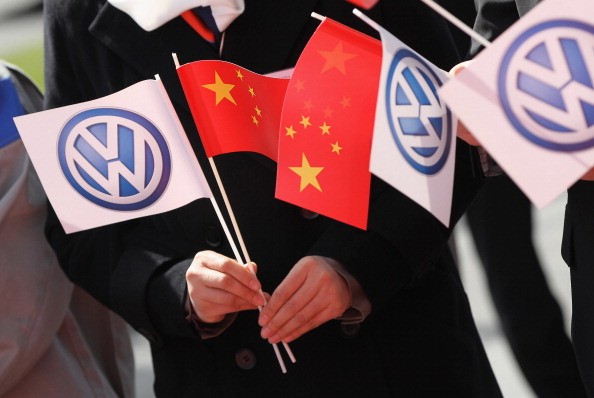The Volkswagen Group has entered formal talks with a state-run Chinese company that could lead to production of electric cars, a move seen by analysts as part of the German automaker's push to electric vehicle sector and recover from its emissions cheating scandal.
Volkswagen signed a memorandum of cooperation with China Anhui Jianghuai Automobile Co. to continue negotiations for "long-term cooperation in the joint development of all-electric vehicles in China," the companies said in separate statements. Jianghuai said the two will have equal ownership of the joint venture, and hop to reach a formal agreement within five months.
"As we aim to be at the forefront of e-mobility, Volkswagen Group is looking forward to explore all options to set up a close and mutually beneficial partnership with JAC," Volkswagen CEO Matthias Muller after the memorandum was signed at the company's headquarters in Wolfsburg, Germany. "We believe this cooperation would not only benefit our two organizations, but would also be of great value to our customers, a sound environment and the Chinese society in general."
Volkswagen, which derives more than a third of its global vehicle sales from China after three decades of operations there, aims to achieve sales of a million electric vehicles a year by 2025. It currently has two manufacturing partners in the China: SAIC Motor Corp. in Shanghai and FAW Group Corp. in the northeast. Under government rules, foreign carmakers must tie up with local partners to produce cars.
China limits foreign auto companies to two local partners to manufacture gasoline-powered vehicles. While the limit does not apply to electric vehicles, most foreign automakers choose to produce alternative-energy vehicles with their current partners. However, analysts say Volkswagen may be able to strike a more favorable deal with Jianghuai than with its existing partners.
"You may get a better agreement from a company who values your technology more," Bill Russo, a Shanghai-based managing director at consultancy Gao Feng Advisory Co., told the Wall Street Journal in a report published Wednesday. "SAIC and FAW may already have [electric vehicle] technologies and do not need VW as much [compared to Jianghua]."
Officials from both FAW and SAIC have declined requests for comment.
With several of its cities suffering from the worst air pollution in the world, China is pressuring local automakers to develop vehicles with reduced emissions while boosting fuel economy. The country also hopes to become a leader in the electric car market.
"We look forward to a full-scope cooperation together with Volkswagen Group, focus on new energy vehicles, to provide Chinese consumers with highly cost-effective battery-powered electric vehicle products that promote the development of the Chinese new energy vehicle sector as well as the Chinese auto industry's transformation," said Jianghuai chairman An Jin.
Volkswagen's venture into the alternative energy vehicles is shadowed by its admissions last year to rigging more than 11 million diesel-powered cars around the world with software that enabled them to beat emissions tests. The company is currently paying out billions in the U.S. to try to settle claims with the government and customers, and criminal investigations are still underway.
In the aftermath, the automaker has said it that it is going to shift its focus from "clean diesels"--which accounted for an estimated 20 percent of its U.S. sales alone--toward battery-powered cars. The Volkswagen Group, which owns other brands like Porsche and Audi, said it will have 30 new electric models by the end of the next decade.



























